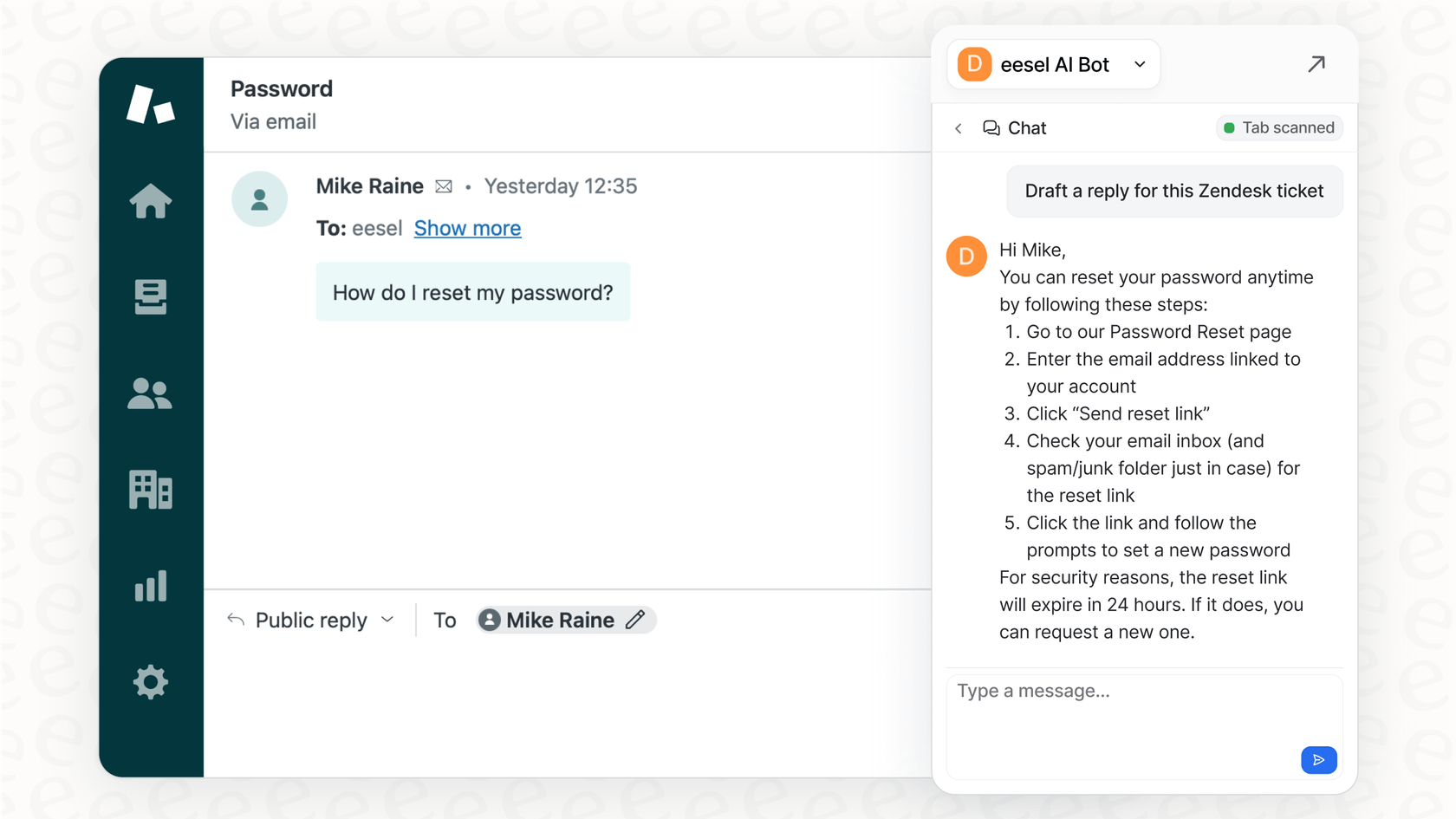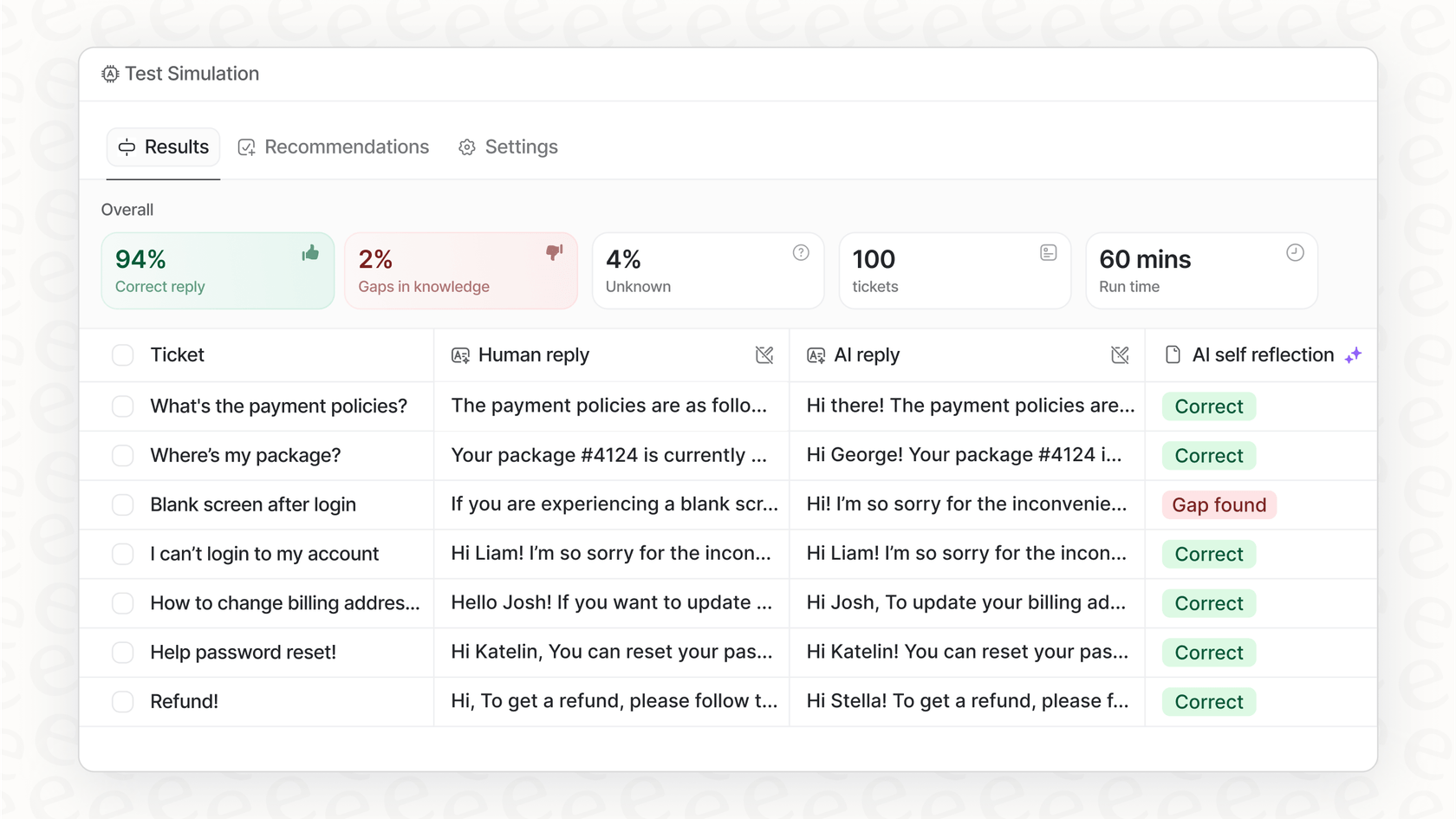
Trying to pick the right AI tool for your business can feel a little overwhelming. New apps are popping up all the time, and they all claim they'll change the way you work. Two names you hear a lot are Claude and Perplexity, but they’re built to do very different things. One is basically a creative writer, and the other is a fact-checking machine.
So, the question isn't just "which one is better?" but which one actually helps with specific jobs like research, writing content, and connecting with the tools you already use every day. Perplexity is great for finding real-time answers, and Claude is fantastic for creative tasks. But honestly, both hit a wall when you try to use them for serious business automation on their own.
This guide will break down the whole Claude vs Perplexity discussion, look at what they’re good at, and show you a more connected way for teams to get work done.
The Claude vs Perplexity debate: What are they?
Before we get into a side-by-side comparison, it helps to know what each tool was actually designed for. They come from pretty different schools of thought.
What is Claude?
Claude is a family of large language models (LLMs) from a company called Anthropic. You can think of it as a friendly AI assistant that’s programmed to be helpful and honest. Its biggest superpower is its massive context window, which lets it process and remember up to 200,000 tokens of information at once. That's like reading a short novel and remembering every detail in a single go.
This makes Claude really good at things like summarizing long reports, helping with complicated coding problems, or just having a long, detailed conversation without losing track. People often say its writing style feels natural and creative, making it a favorite for brainstorming, drafting articles, or digging through huge text files.
What is Perplexity?
Perplexity calls itself an "answer engine," which is a fancy way of saying it's a search engine you can talk to. Instead of just giving you a page of blue links like Google, it browses the web for you and comes back with a straightforward, summarized answer, complete with links to its sources. That’s its most useful feature, you always know where the information came from, which is perfect for fact-checking.
Perplexity isn't just one AI model. It's a platform that can tap into different LLMs (including some from OpenAI and Anthropic) to find the best possible answer. This makes it a solid choice for research, keeping up with what your competitors are doing, or writing anything that needs to be backed up by fresh, verifiable facts.
Claude vs Perplexity: Information retrieval and accuracy
For any business, how an AI finds and presents information is a pretty big deal. You need answers you can trust, whether you're putting together a report for your boss or trying to help a customer.
Perplexity's main strength here is its live web search. If you need the latest market data or news about a competitor, it pulls up-to-the-minute info and shows you exactly where it found it. That transparency is a huge help for building trust and verifying facts without a lot of extra work.
Claude, on the other hand, mostly works off its internal training data, which means its knowledge has a cutoff date. It can do some web searching, but it’s really at its best when it's summarizing documents you give it. You can upload a 100-page PDF and ask detailed questions about it, but it won’t know about a press release that was published five minutes ago.
Here’s the catch for businesses: both of these tools are looking at your company from the outside. They can search the public web or analyze a file you upload, but they can't see your company's most important information, the internal knowledge you've built up over years. A support agent can't ask Perplexity about a specific customer's order history or ask Claude to pull up a solution from an old support ticket. They're completely blind to the context that actually matters.
This is where a tool built for this exact problem, like eesel AI, changes things. It connects all your business knowledge in one place. eesel AI plugs directly into your helpdesk (like Zendesk or Freshdesk), internal wikis (like Confluence), and private documents (like your Google Docs). It learns from your data to give your team accurate, context-aware answers that a generic tool could never provide.
Claude vs Perplexity for content creation and complex tasks
Finding information is one thing, but businesses also need AI to help create content, summarize things, and handle more involved tasks.
For creative and long-form writing, Claude is the easy choice. That huge context window makes it amazing at drafting detailed articles, summarizing dense reports, and even helping with code. If you need to tell a story or get a deep understanding of a large document, Claude is going to serve you better.
Perplexity is more for fact-based content. It can put together a decent report or a summary of recent news, but its writing style is more functional than creative. It’s all about delivering information clearly, not winning a poetry contest.
But again, there's a problem. Creating content in these tools happens in a vacuum. A support agent handling a customer ticket has to open a new tab, copy the customer's question, paste it into Claude, wait for an answer, copy it back, and then re-edit the whole thing to sound like your company. It's a clunky, slow process that completely breaks their workflow.
eesel AI fixes this by putting AI right where your team is already working. The AI Copilot drafts replies for your support team right inside your helpdesk. And because it’s trained on your team's best past responses, the answers already use your brand’s voice and have the right information. It’s not just spitting out generic text; it’s giving you a relevant solution that’s ready to go. For common questions, the AI Agent can even automate the entire conversation.

| Feature | Claude | Perplexity | eesel AI |
|---|---|---|---|
| Creative Writing | Excellent | Average | N/A (Uses your brand voice) |
| Long Document Summary | Excellent (200K token context) | Limited | Excellent (Learns from all sources) |
| Coding Assistance | Very Good | Good | N/A |
| Factual Content | Good | Excellent (with sources) | Excellent (with internal sources) |
| Workflow Integration | None (Manual copy/paste) | None (Manual copy/paste) | Native (Inside helpdesk/Slack) |
Claude vs Perplexity: Pricing and business value
On the surface, both tools seem pretty affordable. But for a business, what you actually get for your money is about more than just the monthly subscription fee.
Claude pricing
-
Free Plan: You get to use the Sonnet model, but you'll likely hit the daily message limits pretty fast.
-
Pro Plan ($20/month): This gives you at least 5x more usage, priority access when things get busy, and access to the latest models like Opus.
-
Team Plan ($30/user/month): You get higher usage caps and some basic admin tools for managing a team.
Perplexity pricing
-
Free Plan: You get unlimited basic searches but only a few "Pro" searches (which use the better models) per day.
-
Pro Plan ($20/month): Unlocks 300+ Pro searches daily, lets you choose different AI models like GPT-4 and Claude 3, and gives you unlimited file uploads.
-
Enterprise Pro ($40/user/month): Adds features for team collaboration and central billing.
The real cost of using these tools is the time your team wastes. Every minute an employee spends switching tabs, copying and pasting, and tweaking generic AI responses is a direct hit to their productivity. They're powerful tools for an individual, but they aren't built for the smooth, efficient workflows a team needs.
This is where eesel AI's pricing offers a different kind of value. The plans are straightforward and predictable, based on how much automation you need, not on per-ticket fees that can leave you with a surprise bill at the end of a busy month. You're not just paying for access to an AI model; you're getting an automation platform that delivers a real return by deflecting tickets, solving issues faster, and making your whole team more efficient. Plus, you can start with a flexible monthly plan and cancel anytime, so you’re not locked into a long-term contract.
Claude vs Perplexity: The verdict for business automation
So, after all that, which one should you choose? It really depends on what you're trying to do.
-
Go with Perplexity when you need up-to-the-minute research with sources you can check. For fact-finding, it's hard to beat.
-
Go with Claude when you need to write high-quality creative content, get help with code, or analyze long, complicated documents.
The thing is, both tools struggle with the "last mile." They can give you information, but they can't actually do anything with it inside your company's systems. They can't tag a ticket in Zendesk, escalate a problem to the right person in Slack, look up customer details in Shopify, or create a new issue in Jira. They're like powerful calculators in a world that needs a fully connected accounting system.
This is why a platform like eesel AI was built, to solve the entire workflow from start to finish.
-
Get started in minutes, not months: With one-click integrations for your helpdesk, you can be up and running right away without needing developers or sitting through long sales calls.
-
You're in complete control: Our workflow engine is customizable, so you can decide exactly which tickets you want to automate. Start small and grow as you get more comfortable. You can also tell the AI exactly what it's allowed to do, from tagging tickets to making API calls to your internal tools.
-
Test it out with confidence: Before you go live, you can use our simulation mode to test your setup on thousands of your past tickets. This gives you an accurate preview of how it will perform and lets you make adjustments in a safe environment, removing all the guesswork.

Choose the right tool for the job
The Claude vs Perplexity debate is a good reminder that not all AI tools are the same. Perplexity is your tireless researcher, and Claude is your creative sidekick. Both are great at what they do.
But for businesses trying to improve their customer support or internal processes, what's really needed isn't just another chatbot. It's an integrated automation platform that works where your team works, learns from your company's unique knowledge, and can handle tasks all the way through.
This video provides a helpful overview of when to use Perplexity for research versus when to use Claude for content creation.
If you're serious about using AI to get real results, it's time to move beyond copying and pasting. A purpose-built tool is the next logical step for transforming your support workflows.
Ready to stop copy-pasting and start automating? Try eesel AI for free and see how our AI agents can connect with your existing tools in minutes, not months.
Frequently asked questions
Claude excels as a creative AI assistant with a vast context window, ideal for long-form writing, summarization, and complex coding. Perplexity, on the other hand, functions as an "answer engine," specializing in real-time web research, providing summarized answers with verifiable sources.
Perplexity is superior for up-to-the-minute information retrieval and factual accuracy because it performs live web searches and cites its sources. Claude primarily relies on its internal training data, which has a knowledge cutoff, making it less suitable for real-time news or market data.
Claude is the stronger choice for creative, long-form content generation and deep analysis of large documents due to its natural writing style and extensive context window. Perplexity is better suited for fact-based content, like reports or summaries of recent news, where clarity and sourced information are paramount over creativity.
Both Claude and Perplexity offer free and paid plans around $20/month for individuals, with higher-tier team plans. However, the blog argues that the true business cost lies in the time wasted by employees on manual copy-pasting and tab-switching, which neither tool inherently solves for integrated workflows.
The blog highlights that both Claude and Perplexity generally lack native integration with business-specific tools like helpdesks, CRMs, or internal wikis. Users typically have to manually copy and paste information, which breaks workflow efficiency and limits their utility for deep business automation.
Perplexity is best for tasks requiring real-time market research, competitor analysis, or quickly finding verifiable facts. Claude is ideal for drafting detailed articles, summarizing lengthy internal reports, coding assistance, or brainstorming creative content.
A significant limitation for both Claude vs Perplexity is their inability to access or integrate with a company's internal, proprietary knowledge base. They cannot pull information from private documents, specific customer order histories, or past support tickets, making them "blind" to critical business context.
Share this post

Article by
Kenneth Pangan
Writer and marketer for over ten years, Kenneth Pangan splits his time between history, politics, and art with plenty of interruptions from his dogs demanding attention.






